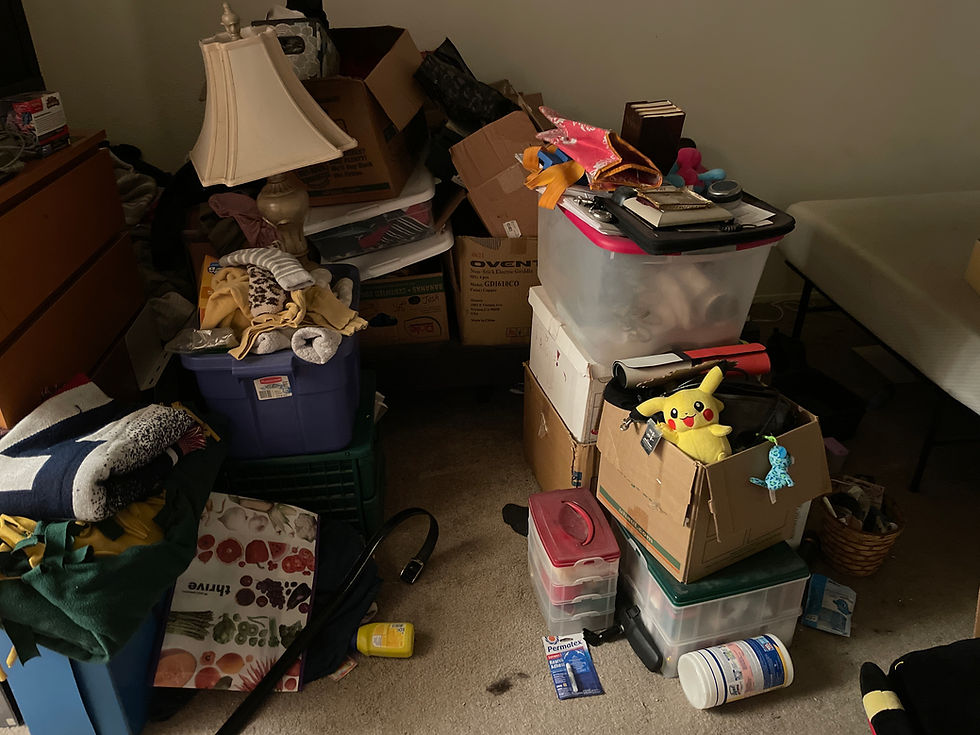Where am I now?
- Summer Contreras-Lemmon

- Mar 7, 2023
- 2 min read
Imagine your worst fears. Your deepest, darkest, most disturbing thoughts. Imagine you are surrounded by ravenous, black birds, each bird representing a wayward thought, a fear, and the birds strike you constantly, getting tangled in your hair and pecking at your head, nearly 24-7.

This describes how it feels to live with severe obsessive-compulsive disorder (OCD), a widespread but commonly misunderstood anxiety disorder that, according to the International OCD Foundation (IOCDF), afflicts 1 in 100 adults and 1 in 200 children. I have lived with OCD for most of my life, likely at least since I was 8 years old. However, I was undiagnosed until I was 18, and I didn’t seek professional help until I was 23.
Some of you may be wondering where I have been in this world, whether I am “successful” in a career, or pursuing graduate work. The short answer - and a totally okay, but hard-to-accept answer - is “no”. I have barely been able to hold down a full time job. Most of my jobs have been call centers or fast food joints, and I haven’t studied beyond a bachelor’s. And that’s because of this insidious, God-awful disorder.
But there is hope. OCD as debilitating as it can be, is treatable. The “gold standard” treatment for OCD is a type of cognitive behavioral therapy (CBT) called exposure and response prevention (ERP). In ERP, sufferers repeatedly and deliberately trigger their OCD by exposing themselves to their fears followed by a conscious effort to not engage in their compulsions. Over time, the repeated exposures lead to a process called “habituation” where the mind grows accustomed to the trigger and learns that the feared situation is not actually a threat. ERP is simple in concept, yet difficult to put into practice. Imagine going face-to-face with your worst fears! And on purpose! As OCD sufferer, radio show host, and author Jeff Bell puts it, ERP can feel like “torture therapy”. And people actually pay therapists to help you do this? But as difficult as ERP is, according to the IOCDF, ERP works (along with medication when necessary) in about 70 percent of cases.
For me, just writing this post here is a feat. Not too long ago, I was so stuck in my obsessions and compulsions that I could no longer read or write. It’s not that I wasn’t capable of reading or writing, of course; it’s just my OCD interfered with my life so much that I lost some of my basic functioning. Thankfully, because of residential treatment, that has changed. Although I still struggle with some of my day-to-day functioning, such as going to work and completing school assignments, I am far beyond where I was during that time, when I was at my wit's end. I hope to write more on that later.
I am hoping this blog will not only chronicle my journey with mental illness, but also aid in my own recovery and encourage others along the way. Here's to an imperfect first post!







Comments